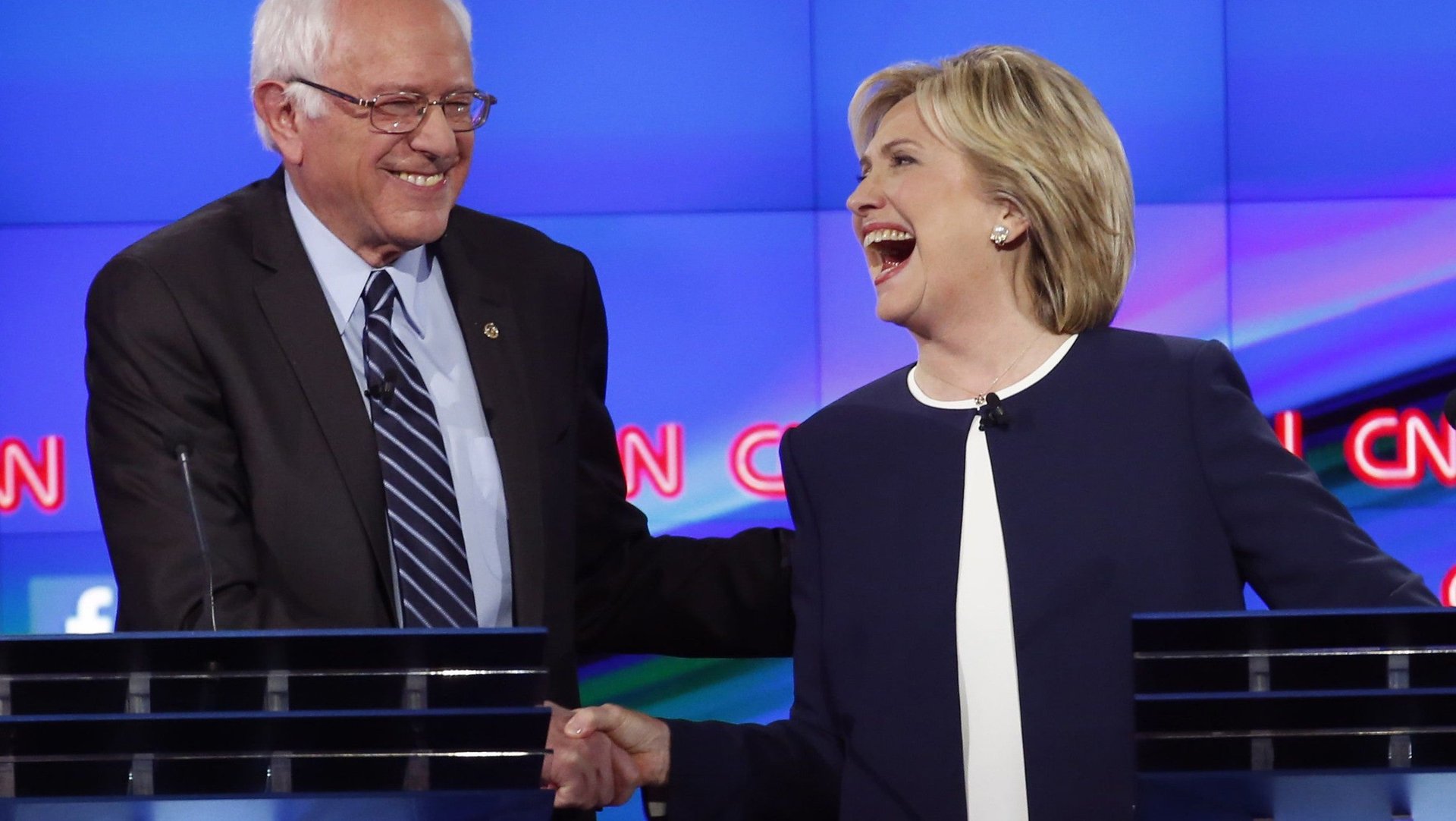Hillary Clinton easily outpaces her rivals at the first Democratic debate
It wasn’t much of a contest.


It wasn’t much of a contest.
By the time Bernie Sanders declined a gift-wrapped opportunity to dig into former Secretary of State Hillary Clinton’s e-mail scandal, it was clear that Clinton would emerge from the first Democratic debate with a clear path to the nomination.
Sanders, the only candidate to challenge Clinton in public opinion polling, won applause from the debate audience—and even from Republican contender Donald Trump—when he seconded Clinton’s call to talk about substantive issues rather than the private e-mail server she maintained during her tenure as America’s top diplomat.
The high-minded move isn’t out of character for the Vermont lawmaker, but it also suggests that he would be satisfied to shift the eventual nominee to the left, rather than truly contending for the nomination. Analysts see his rise as a contributing factor in Clinton’s opposition to the Pacific free trade pact and her rejection of a tax on expensive health care plans.
Nor did he question Clinton’s judgment on other issues, even when debating financial reform and ties to the financial sector—a marked contrast to Clinton’s jabs at Sanders’ mixed record on gun control laws or, during a segment that Anderson Cooper devoted to exploring Sanders’ views as a democratic socialist, pointedly noting the American tradition of free enterprise.
Though Clinton made more than her fair share of attacks on Republican policies, she was the only candidate to repeatedly highlight her willingness to make deals with political opponents. Asked whether she was a progressive or a moderate, she said she was a “progressive who likes to get things done.”
Clinton, alone among the Democratic contenders, seemed to already be looking beyond the primary. This focus on the general election was made easier by the fact that the rest of the candidates on stage failed to provide much of a contrast to Clinton and Sanders. Former Maryland Governor Martin O’Malley came off as competent and practiced but lacked energy.
Former Rhode Island governor Lincoln Chafee seemed lost and easily flustered, and former Virgina senator Jim Webb’s dyspeptic foreign policy arguments and complaints about air time failed to inspire.
Unlike the Republican debates, there was unity of purpose on display in Las Vegas: the policy differences between these candidates are largely issues of degree, and at times, the candidates reveled in their solidarity and focused on their contrast with conservatives on issues of race and gender.
Clinton didn’t side with some of her colleagues on breaking up the banks, but her financial reform plan would impose significant restrictions on large financial institutions. Everyone loves family medical leave. Sanders would expand social security, while Clinton would limit any enhancements to social security to the particularly underprivileged.
Clinton had answers on topics where she might fail to connect with the Democratic base, like her vote to authorize the Iraq war (she found absolution in being appointed Secretary of State by Iraq war opponent Barack Obama). And as the only woman on stage—and potentially the first woman president—she has a built-in advantage within the Democratic coalition.
For all the energy in Sanders insurgent campaign, if he can’t draw a personal contrast with Clinton, she will remain her own worst enemy in the primary race. With her opponents defanged, only her own mistakes—or new revelations—will be able to undermine her popularity with the Democratic base.